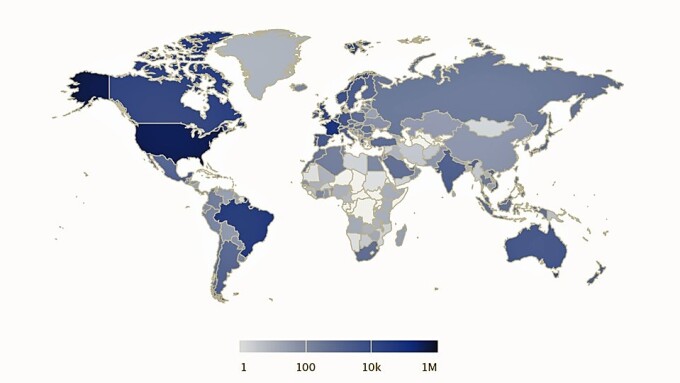LOS ANGELES — The discussion over Net Neutrality is heating up as a recent report reveals that some U.S. wireless carriers are actively throttling consumers’ access to popular streaming services such as Netflix and YouTube — and you can bet that porn sites are being slowed as well.
Published by a group of researchers from Northeastern University and the University of Massachusetts at Amherst, the report, “A Large-Scale Analysis of Deployed Traffic Differentiation Practices,” revealed that from 2018 to 2019, major carriers throttled video streams “all the time.”
The test involved 1,045,413 crowdsourced measurements gleaned from 126,249 users of the Wehe app, which monitors data speeds, revealing how much a carrier is throttling or accelerating the availability of services, helping guide consumers to the carrier they wish to use in the future. The app’s users spanned 2,735 ISPs in 183 countries for a comprehensive sample.
Among the findings, AT&T slowed access to Netflix 70 percent of the time and to YouTube 74 percent of the time, while leaving Amazon Prime Video unthrottled. T-Mobile wasn’t as kind to Amazon, slowing its Prime Video 51 percent of the time while protecting Skype streams and only grazing Vimeo’s throughput.
“They are doing it all the time, 24/7,” stated report co-author David Choffnes, “and it’s not based on networks being overloaded.”
This raises the question of preferential treatment; and while carriers may claim they are not throttling a specific service and rather slowing down all services in response to peak-time increases in consumer demand, the stats are showing otherwise.
Regardless of any actual data to support the presumption, it’s quite likely that if access to major mainstream video services is being restricted by carriers, then your porn is being slowed, too. It is all part of the predicted unsustainability of the current online video ecosystem, which has grown so vast as to be labeled an environmental risk.







